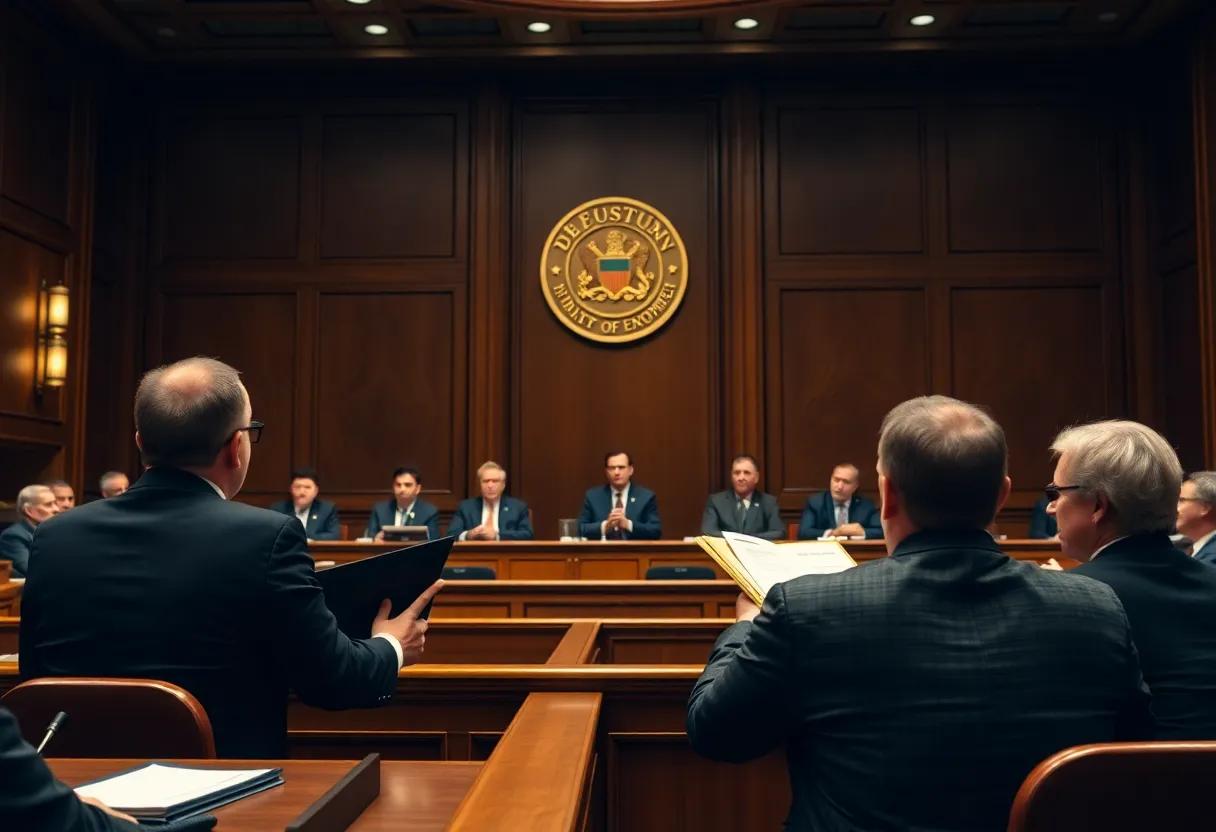Recent Lawsuits Bring Corporate Accountability to the Forefront
In the bustling city of Chicago, a wave of lawsuits against major corporations has sparked important conversations about consumer safety and corporate responsibility. As we sift through the details and outcomes of these high-profile cases, it becomes clear that there’s a long road ahead for businesses to rebuild trust and ensure the safety of their products.
Johnson & Johnson: Baby Powder Controversy
One of the most alarming cases revolves around Johnson & Johnson’s baby powder. Allegations surfaced that the talc-based powder contained traces of asbestos, a known carcinogen. This revelation has not only put countless consumers at risk but also raised serious doubts about how products are regulated and tested before hitting the shelves. According to legal sources, over 58,000 claims are still pending as of November 2024, with many plaintiffs asserting that the talcum powder has caused serious health issues, including ovarian cancer and mesothelioma.
This ongoing litigation highlights a crucial point: the demand for stricter safety regulations for everyday products, particularly those marketed to vulnerable groups like children and women. What can consumers do to protect themselves? The answer lies in advocating for transparency and accountability from companies.
Volkswagen’s Dieselgate: A Lesson in Environmental Integrity
Switching gears to the automotive industry, we all remember the scandal known as “Dieselgate”, where Volkswagen was caught using special software to cheat emissions tests. Essentially, their vehicles were equipped with “defeat devices”, allowing them to pass inspections while emitting pollutants that were up to 40 times the legal limit! Talk about a betrayal!
This scandal affected around 590,000 diesel vehicles worldwide and led to significant repercussions for Volkswagen. The blown whistle resulted in billions in fines and legal actions from government bodies and consumers alike. This ill-fated venture not only shook up the company’s reputation but also made many consumers question the validity of environmental claims made by car manufacturers.
Pesticides and Public Health: The Monsanto Saga
Moving on to agriculture, the lawsuits involving Monsanto’s Roundup have brought attention to the potential health risks associated with common farming chemicals. A staggering 125,000 lawsuits accuse glyphosate, a key ingredient in Roundup, of causing cancer and other health concerns. While Monsanto—now part of Bayer—plans to phase out glyphosate for residential use, it remains a staple in agricultural practices.
This controversy underscores the urgent need for clear labeling, informed consumer choices, and more rigorous regulations in the chemical industry. As consumers increasingly seek organic and non-GMO products, companies are being called to step up their game and ensure safety comes first.
Data Privacy in Tech: Facebook’s Struggles
In the digital realm, Facebook has found itself on the receiving end of lawsuits following the Cambridge Analytica scandal, where millions of users had their data harvested without their consent. This breach of privacy sparked outrage and led to serious trust issues. According to statistics, nearly 9.41% of US adults deleted their Facebook accounts in 2018, while many others reduced their usage significantly.
The fallout from this crisis emphasizes the growing importance of data protection laws and privacy safeguards. In a world increasingly dominated by technology, consumers deserve to know how their information is being used and protected.
Opioid Crisis and Purdue Pharma
Last but not least is the sad saga surrounding Purdue Pharma, responsible for marketing OxyContin and contributing to the opioid crisis. This corporation downplayed addiction risks and misled the public, ultimately leading to a wave of lawsuits. Facing immense backlash, Purdue filed for bankruptcy and agreed to a multibillion-dollar settlement, although the distribution of these funds remains in limbo due to ongoing legal battles.
The opioid crisis serves as a glaring reminder that trust in the healthcare system is vital. As communities grapple with addiction, questions still loom about how settlement funds will be used to address treatment and prevention effectively.
The Key Takeaway: Demand for Better Standards
As we ponder the implications of these lawsuits against giants like Johnson & Johnson, Volkswagen, Monsanto, Facebook, and Purdue Pharma, it’s clear that consumers must advocate for their safety and rights. Transparency, accountability, and a strong commitment to ethical practices in business aren’t just optional—they are essential for rebuilding trust and ensuring public health.
In a world where consumer safety is increasingly jeopardized by corporate negligence, it’s up to us to demand `better` standards, regulations, and practices. The power lies in the hands of the consumers—let’s ensure we use it wisely!



















